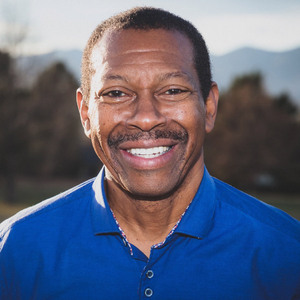I Never Thought

“Hey, some white girls invited me to their church that has a brand new gym! We can play basketball there,” Russell whispered so not to be heard by my parents. “Are you crazy! White girls! Are you on drugs!” was my response to my extremely excited best friend.
Don’t get me wrong. I loved girls too! In fact, I really didn’t care what color they were. If they were breathing, I was good to go.
But this was Winston-Salem, North Carolina in 1968. Segregation had been legally abolished four years earlier, but was still strictly enforced in my city. The Ku Klux Klan had had downtown parades until the Black Panthers arrived. The presence of the National Guard wasn’t uncommon.
Yet, this was North Carolina. The priorities were basketball, tobacco and Baptists in that order.
Basketball was my god! I didn’t know Jesus personally then. I loved playing basketball on a new gym floor!
Russell and I were thrill seekers, often participating in dangerous activities without our parents’ permission or knowledge. But this was different. We knew our parents needed to know about this church because it's dangerous to go because it was on the other side of the railroad tracks that separated the Black and White communities.
My request resulted in a two-hour family meeting with all of my relatives. When it looked like Russell and I wouldn't be allowed to go, I blurted out, “Jesus will be with us!” This phrase turned the tide! I was a drug baby. My parents drug me to church every time our church’s doors were open. So I knew if I mentioned Jesus good things would happen. My parents let us go.
As we walked to this White church, we had a Cheryl Crow mentality, we just wanted to have some fun. But Russell and I were nervous—we’d never crossed the railroad tracks on foot and never without an adult. Russell was thirteen and I was fourteen. I was also his bodyguard because he was only 4’8 and I was much taller at 4’9.
Once we crossed those railroad tracks, White called us names and simultaneously threw coke and beer bottles at us. We were good athletes and easily dodged the bottles and cans.
Once we entered this church’s new gym, all activities and conversations stopped! All the White people just stared. Some adults looked nervous. Initially, I thought, “O heck (not really heck), we’re going to have to fight. But the girls who invited Russell greeted him. Activities resumed. I went to the basketball court because it was familiar.
Shortly after going to the basketball court, a tall, skinny man with glasses introduced himself. He said, “I’m Gary Chapman. I’m the youth pastor here. I’m glad you came this evening.” A White man spoke to me with respect. He was different from other White men. His words and actions made me feel safe and welcome. He played with us as well.
When the evening concluded, Gary invited Russell and me to come back. I was shocked!
A White girl, Sarah and her older brother Gene heard that we walked four miles to the church gym. They gave us a ride home, saving us from being serenaded by bottles and curse words.
For a few weeks, this brother and sister picked us up at my house and drove us to the church gym and then back home.
The following week, Gary Chapman came to pick us up. James, my new friend and I were sitting on my porch. As we headed to Gary’s car, he got out and said, “You boys ready to go?” Immediately, James responded, “I ain’t no boy!” Gary instantaneously said, “I’m sorry. I didn’t mean to offend you. Let’s go to the gym, then, let’s talk about this afterwards.” We all agreed to do so.
After the meeting, for more than two hours, we discussed this word boy. James and I shared with Gary that White people called our fathers, grown men boys as an insult. We further explained to him that our parents told us to never let a White person call us boy. Gary listened.
Once we finished sharing our perspective, Gary shared his. He said that he didn’t mean anything by calling us boys. He said, “If you had been two White guys, I would have called you boys.” He continued, “To me, boy is an age thing.” We listened. Gary’s first time picking us up could have been the last and end to a relationship that never got started.
What saved this cross-cultural relationship? Gary immediately apologized as soon as he sensed that he offended us. Next, we discussed our cultural differences regarding the word “boy.” We listened to each other. No one got defensive. And no one quit on the other.
This was and is the foundation to a fifty-four year relationship before cross-cultural relationships were considered acceptable. I never thought that I’d have a friendship with a White man. This was before Gary became famous as the New York Times Best Selling author of The Five Love Languages. He risked a lot to be my friend.
In cross-cultural relationships just like dating and marriage there is usually going to be some conflict. Conflict is reality. To avoid conflict is to in most cases, is to avoid reality. So, conflict isn’t bad, but how we handle conflict is critical! Listening is half of communication; thus, it is incredibly critical to any relationship. We have to listen to different perspectives.
In 1 Corinthians 12, Paul teaches about spiritual gifts. One truth regarding spiritual gifts is that because we all don’t get the same gift, interdependency is essential. God wants this interdependency to create a unity. God wants us to understand that He created us to need each other. This brings God glory.
1 Corinthians 12:26 says, “If one part suffers, all the parts suffer with it, and if one part is honored, all the parts are glad.” We can’t do this—obey God if we don’t know each other.
Many Christ followers want to improve race/culture relationships in America, but don’t know what to do.
One way Christ followers can do something is by applying Twelve Loving Actions That Define True Friendship. They are taken from Gary’s and my new book, Life-Changing Cross-Cultural Friendships: How You Can Help Heal Racial Divides, One Relationship at a Time.
These loving actions may help you connect within your own culture, but especially cross-culturally.
We can initiate greeting another person or start a conversation.
View other people in the same way God values you. Genesis 1:26-28 teaches us that God wanted us knowing that we would be perfect. He gave us his DNA (image), so we have value, purpose and a godly destiny. So, don’t look down on people from a different culture or race. Don’t join in derogatory jokes about people who are different than you.
We can talk, play and eat together. This is what happened the first time I met Gary at that gym. You can do this with a cross-cultural new student at your school. You can sit with them at lunch, church, start a conversation, and not let them be insulted.
If you are a Christ follower, you can pray, be open and show patience with someone cross-culturally. It’s easy for people to misunderstand each other, especially cross-culturally.
Give people the benefit of the doubt. Don’t go by first, second and maybe even third impressions. More than ever today, people are afraid of being rejected. That coupled with a poor self-image, may take meeting four times or more before someone will begin to trust you enough to open up to you.
Use your curiosity to listen, inquire, learn and grow. It’s okay to ask questions about difference in a respectful way.
Embrace and mutually work through conflict. Remember Gary calling James and me boys. We discussed it. Gary shared his perspective—an age issue. Then, we shared ours—we’d seen our fathers call boy as a derogatory term. Gary, James and I learned from each other. By embracing conflict, not quitting our relationship, not being defensive, we actually became closer friends because we gained understanding and learned more about each other. Don’t avoid conflict, but understanding how you handle conflict is critical!
In some cases, agree to disagree without losing the friendship. The friendship has to be the priority, not being right or being able to persuade your friend to your side.
Study and learn about what is important to others. Learning about what is important to cross-cultural friends, communicates, “I care about you.” Philippians 2:4, “Don’t look out only for your own interests, but take an interest in others, too.”
Learn from each other as students of each other’s journey.
Explore the truth even if painful. This takes courage and faith.
Get out of your comfort zone and establish a new cross-cultural friendship.
In order to make and maintain cross-cultural friendships, we may need to become comfortable being uncomfortable. Initiating cross-cultural friendships runs the risk of rejection, but keep trying.
Gary and I know that our cross-cultural friendship was and continues to be life-changing! We are both richer for our relationship.
If America is to improve its cultural/racial relationships, we must go beyond just talking about race to taking the initiative to try making cross-cultural relationships. As we learn to love beyond ourselves as Jesus did, people of all cultures will see that love in us and be drawn to it. Will you accept the challenge to make one cross-cultural friendship?
Dr. Clarence Shuler, President/CEO
BLR: Building Lasting Relationships
www.clarenceshuler.com

